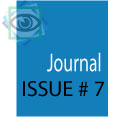International Journal of Small Economies
an International peer-reviewed academic journal on public policy in small economies and nations, island nations and developing countries
Search
Categories
ADAM JAGIELLO-RUSILOWSKI, PHD
University of Gdansk, PL
Vol. 07, No. 01, Year 2022, Pages 20-34
ABSTRACT
The migrant population of the Maldives makes up one-third of the island’s population, with Indian and Bangladeshi migrants forming the bulk of the migrant population. Over one-third of the migrants are undocumented, and local and international sources have reported frequent discrimination and violation The article offers the most relevant literature review and the case study of the NGOs which are led by a global network of Ashoka fellows. The author uses the theory of change and presents evidence on how social innovators build and run NGOs to maximize their social impact, scaling their change- making models to the level of governmental policymaking or even beyond. The role of Ashoka as a global non-governmental organization itself is analyzed in terms of identifying, supporting and rooting the social entrepreneurs with their NGOs within the empowering networks. The methodology uses triangulation of data from Ashoka Social Impact Report 2018 and Ashoka Fellows narrative interviews. The results show the scale and strength of NGOs’ impact in multiple spheres both directly on polices of national governments and indirectly on international policymaking through exerting market-related pressure for embracing social change. The conclusions focus on the overarching principles and ethical fiber of Ashoka fellows as leaders of their NGOs.
Keywords: NGO, Organizations, India, Non-Governmental Organization (NGO), India
Download the paper (PDF):
NGOs’ Impact and Sphere of Influence on Different Governments’ Policymaking around the World. The Case of Ashoka: Innovators for the Public
ADAM JAGIELLO-RUSILOWSKI, PHD
Vol. 07, No. 01, Year 2022, Pages 20-34
Trackbacks
There are no trackbacks on this entry.


Comments
There are no comments on this entry.